-
chevron_right
Filmmakers Expand Piracy Liability Lawsuit, Add Dozens of Millions in Potential Damages
news.movim.eu / TorrentFreak · 7 days ago - 20:19 · 3 minutes
 Under U.S. copyright law, Internet providers must terminate the accounts of repeat infringers “in appropriate circumstances.”
Under U.S. copyright law, Internet providers must terminate the accounts of repeat infringers “in appropriate circumstances.”
Many ISPs have been reluctant to take such drastic measures, which triggered a wave of copyright infringement lawsuits in recent years with WideOpenWest ( WOW! ) as one of the targets .
The Colorado-based Internet provider was sued by a group of movie companies including Millennium Media and Voltage Pictures. The filmmakers accuse the ISP of failing to disconnect the accounts of subscribers who were repeatedly flagged for sharing copyrighted material via BitTorrent.
The movie companies hold WOW! liable for these pirating activities, which could lead to millions of dollars in damages. The ISP rejects the claims and responded with a motion to dismiss, which was denied last year , and the case remains ongoing today.
Multi-Million Dollar Lawsuit Expansion
After the case was stalled for over a year, the movie companies requested permission to submit an amended complaint, which would add seven new plaintiffs and more than 300 new works.
The proposals raised the stakes significantly. Instead of 57 works, good for maximum statutory damages of roughly $8 million, an expansion to roughly 375 works would increase the statutory maximum to $56 million.
In addition to the monetary stakes, the proposed update also introduced evidence from two new third-party piracy tracking companies, Irdeto and Facterra. The initial complaint only included piracy tracking information from anti-piracy partner Maverickeye.
WOW protested these additions, but the court allowed the movie companies to go ahead. This week, they filed their second amended complaint at the Colorado federal court, making the changes official.
Same Claims, Higher Stakes
The nature of the claims against WOW! haven’t changed. The movie companies accuse the Internet provider of contributory and vicarious copyright infringement, as well as DMCA violations.
The complaint lists several examples of WOW! subscribers who, according to the referenced piracy tracking data, repeatedly shared copyright-infringing content including plaintiffs’ films.
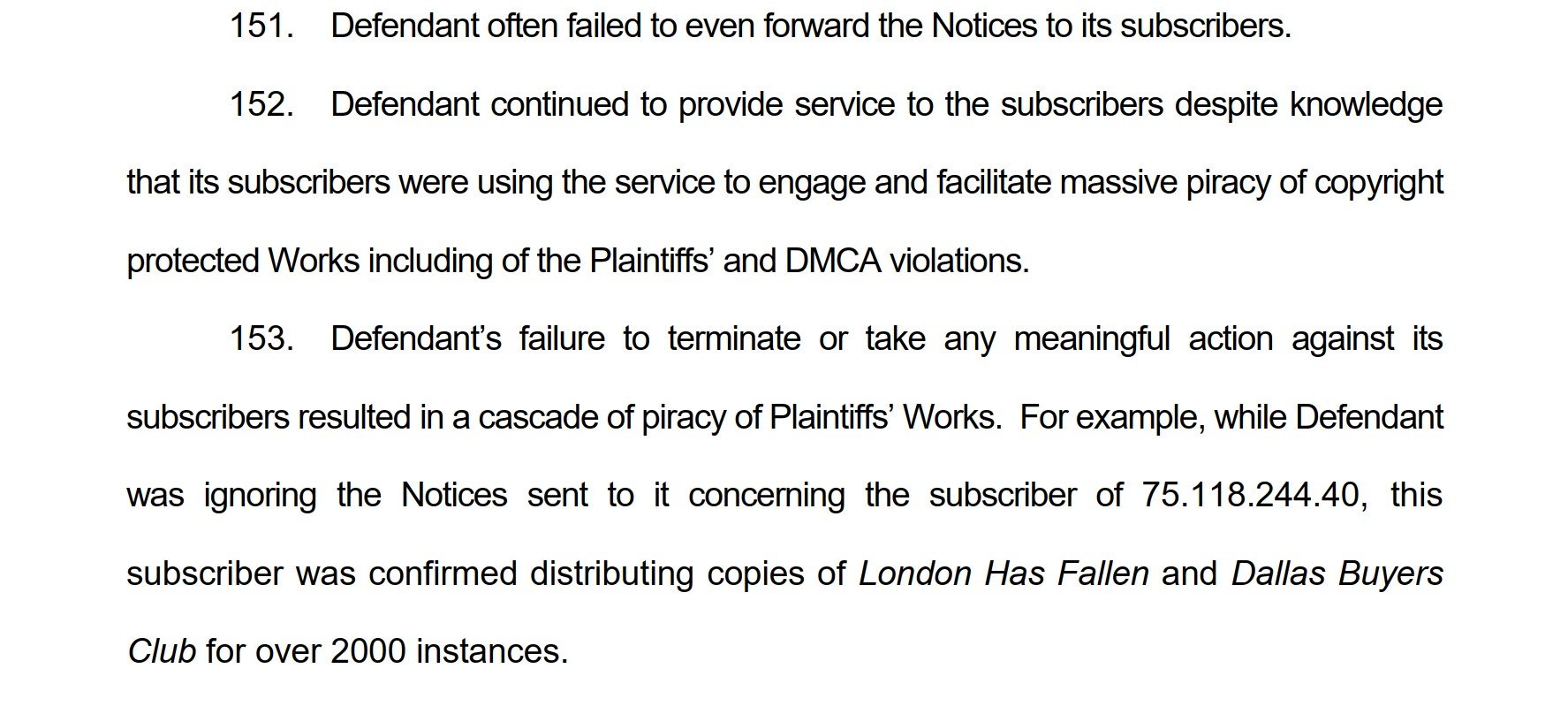
WOW! purportedly received tens of thousands of infringement notices and was allegedly aware of these piracy activities. However, the ISP decided not to take any action as that could hurt its revenues, the movie companies allege.
“Defendant knew that if it terminated or otherwise prevented repeat infringer subscribers from using its service to infringe, or made it less attractive for such use, Defendant would enroll fewer new subscribers, lose existing subscribers, and ultimately lose revenue,” the amended complaint reads.
Redditors and Site Blocking
In addition to IP-address logs and other evidence, the movie companies also cite screenshots from Reddit users who discussed WOW!’s handling of piracy notices, or its lack thereof. They suggest that this acted as a draw to potential subscribers.
“The ability of subscribers ‘who want it all’ to use Defendant’s high speed service to ‘intensively upload and download’ Plaintiffs’ Works without having their services terminated despite multiple notices being sent to Defendant acts as a powerful draw for subscribers of Defendant’s service,” they write.
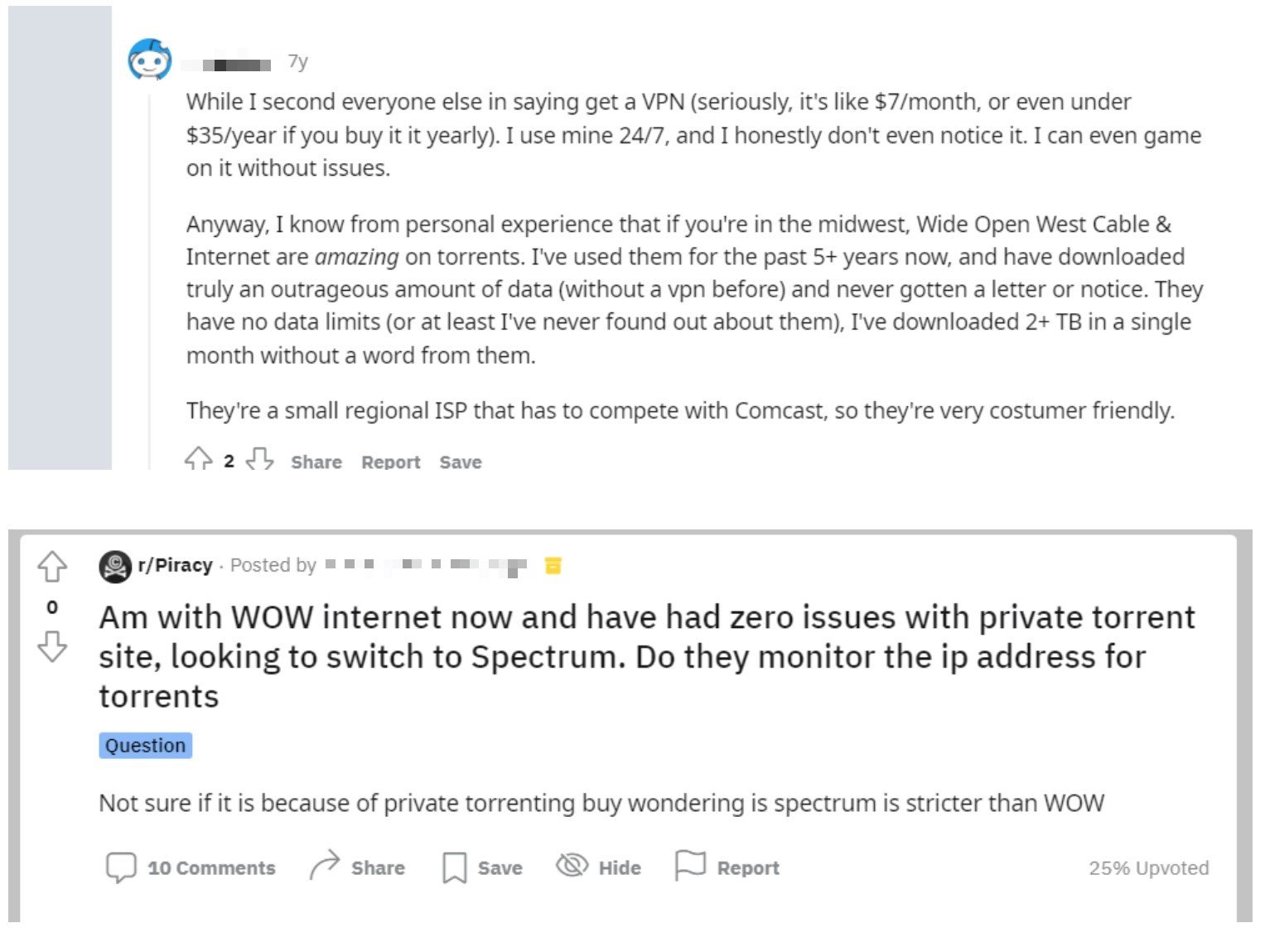
Besides terminating accounts of subscribers whose connections are repeatedly used to pirate, the ISP could have taken other ‘simple’ actions as well. For example, by blocking notorious ‘pirate’ sites such as torrent sites YTS and (the now defunct) RARB.
“Upon information and belief, Defendant refuses to block or limit its subscribers from accessing notorious piracy websites out of fear of losing subscriber revenue,” the complaint reads.
Increased Damages and More
To compensate for this wrongdoing, the plaintiffs request statutory damages up to the maximum of $150,000 per work. With roughly 375 titles in suit, damages could reach $56,250,000 for the copyright infringements alone. The DMCA violations could add millions more to this tally, the movie companies note.
On top of the damages increase, the movie companies still seek far-reaching injunctive relief. They specifically request an order requiring WOW! to terminate the accounts of subscribers targeted by three unique infringement notices in three days.
In addition to this mandatory three-strikes policy, WOW! should also block all alleged pirate sites listed in the USTR’s annual overview of notorious markets . This includes the likes of The Pirate Bay, FMovies, and YTS.
Finally, the movie companies request an order that requires the Internet provider to disclose the identities of account holders whose accounts are flagged for copyright infringement. Needless to say, such an order would allow the companies to target the alleged pirates directly.
—
A copy of the movie companies’ second amended complaint, filed against WOW! at the US District Court for Colorado, is available here (pdf)
From: TF , for the latest news on copyright battles, piracy and more.
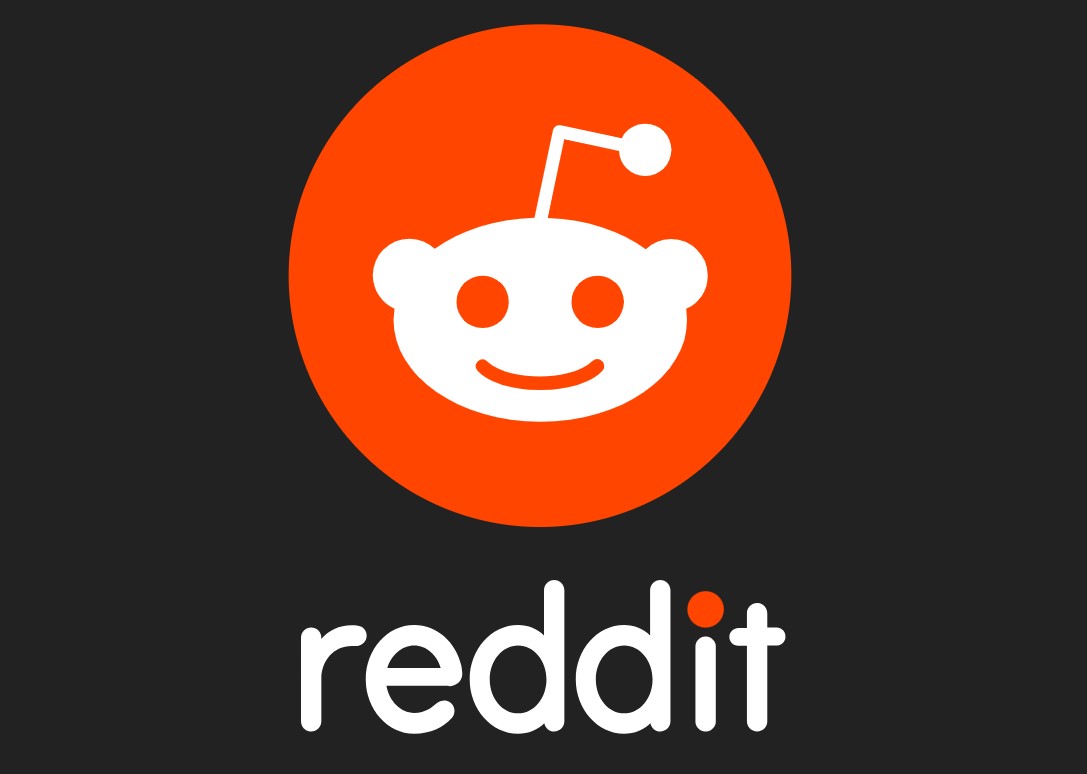 Without doubt,
Without doubt,

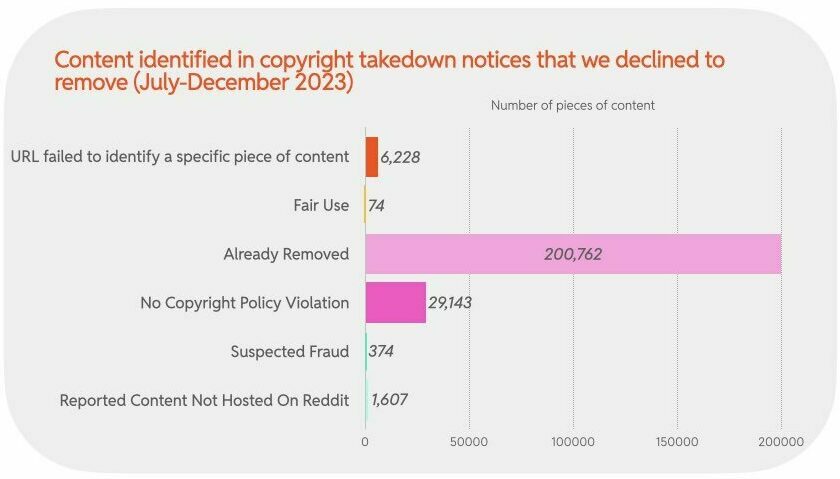
 In a complaint filed at a Nashville federal court
In a complaint filed at a Nashville federal court


 Internet provider Cox Communications has been on the sharp end of several piracy lawsuits in recent years.
Internet provider Cox Communications has been on the sharp end of several piracy lawsuits in recent years.
 Online piracy continues to present massive challenges for the entertainment industries.
Online piracy continues to present massive challenges for the entertainment industries.
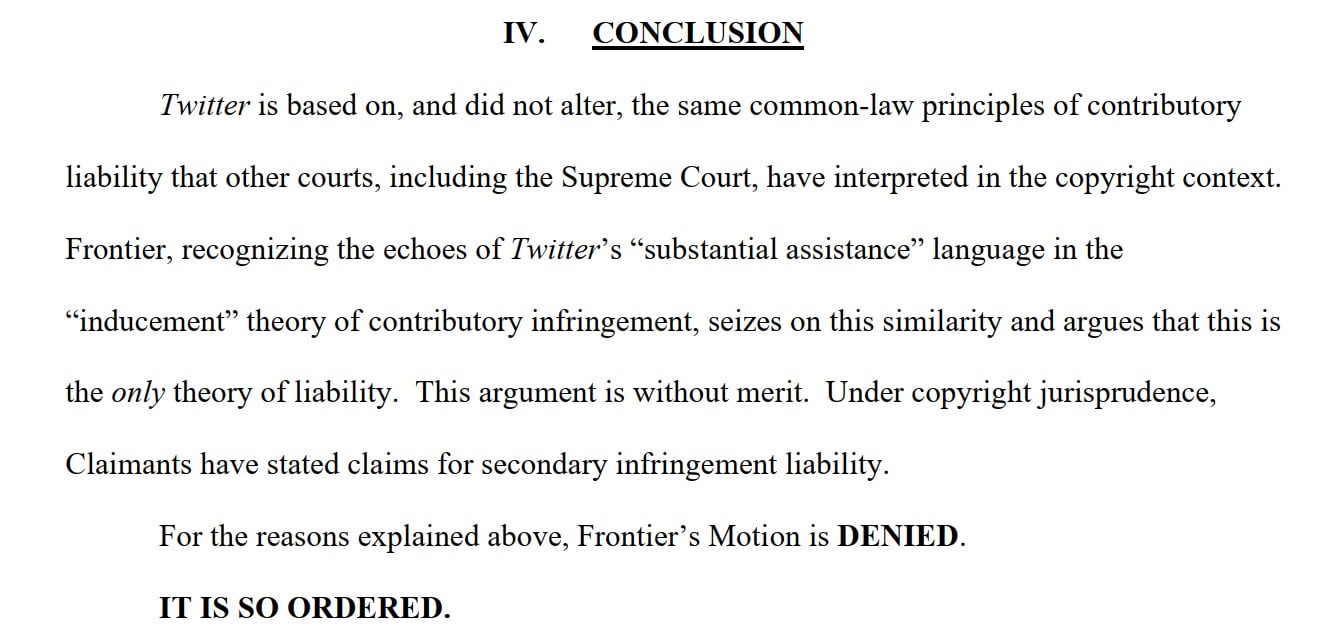
 Late 2019, Internet provider Cox Communications lost its legal battle against a group of major record labels, including Sony and Universal.
Late 2019, Internet provider Cox Communications lost its legal battle against a group of major record labels, including Sony and Universal.
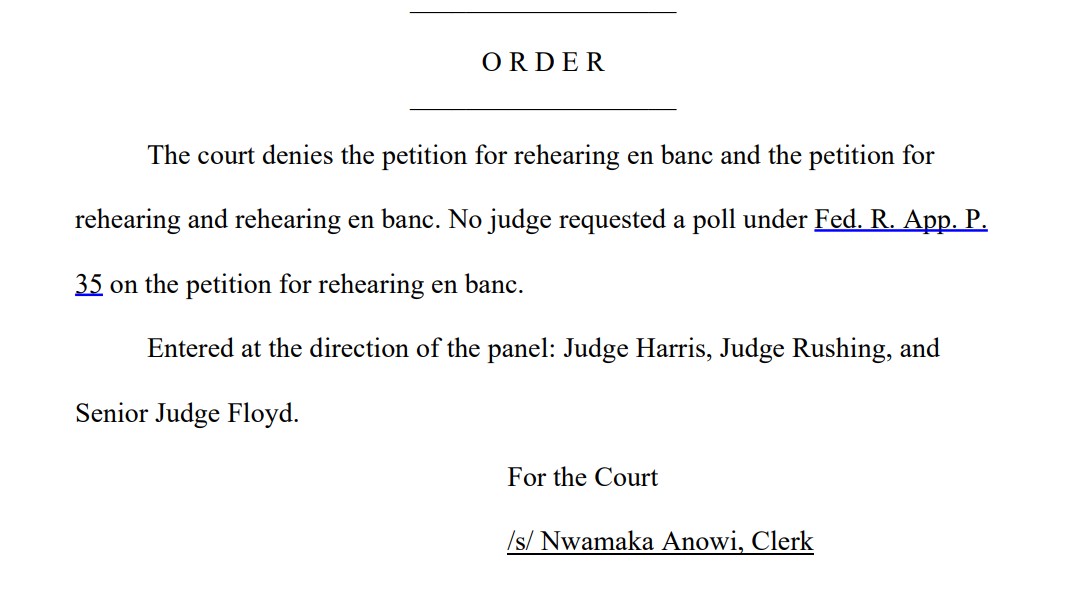
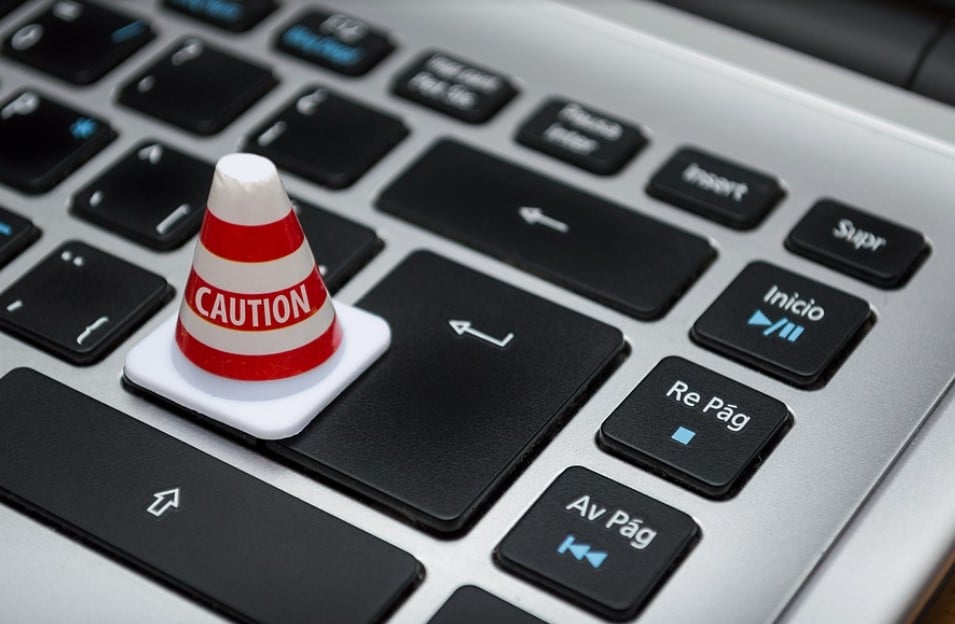 Internet provider Cox Communications has been on the sharp end of several piracy lawsuits in recent years.
Internet provider Cox Communications has been on the sharp end of several piracy lawsuits in recent years.

 Under U.S. law, online service providers must respond to takedown notices and implement a meaningful policy to terminate the accounts of repeat infringers.
Under U.S. law, online service providers must respond to takedown notices and implement a meaningful policy to terminate the accounts of repeat infringers.
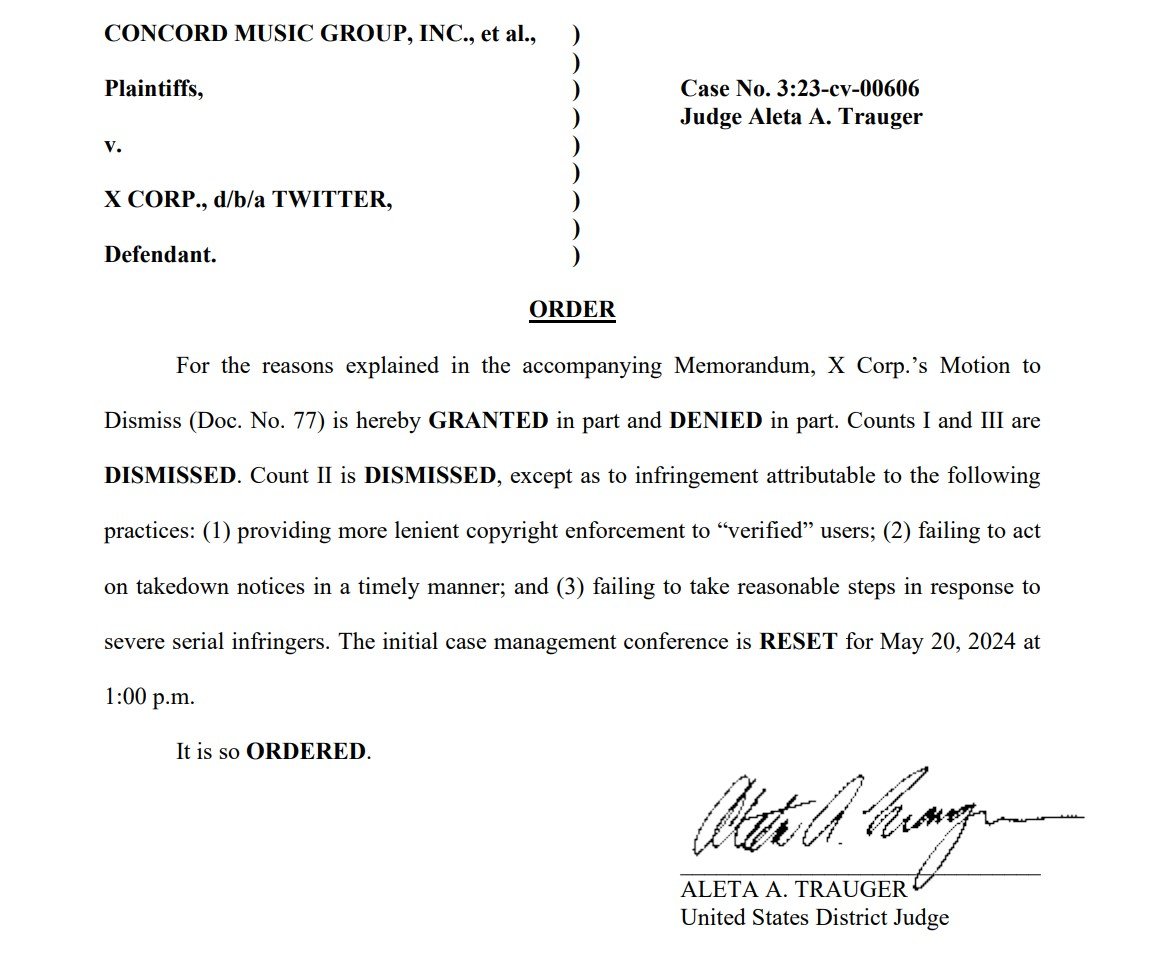
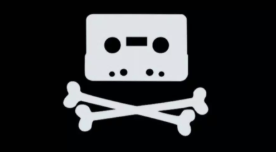 Late 2019, Internet provider Cox Communications lost its legal battle against a group of major record labels, including Sony and Universal.
Late 2019, Internet provider Cox Communications lost its legal battle against a group of major record labels, including Sony and Universal.
